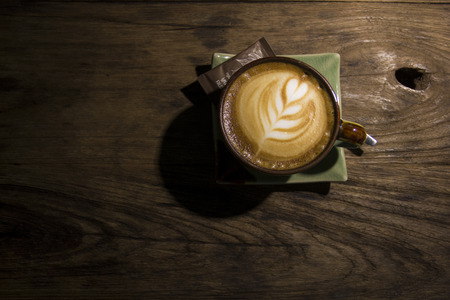A Fresh Brew: Coffee’s Rise in the British Isles
If you wander down the cobbled streets of London or glance through the window of a bustling café in Manchester, it’s hard to imagine a time when coffee wasn’t stitched into the fabric of British daily life. Yet, coffee’s arrival on British shores was a relatively recent affair compared to our age-old love affair with tea. The first coffeehouses sprang up in the mid-17th century, and these “penny universities” quickly became hives of intellectual chatter, political debate, and social connection—a far cry from the genteel, porcelain-clinking rituals associated with afternoon tea.
As coffee percolated through the British Isles, it brought with it a different kind of energy—urban, restless, and cosmopolitan. Unlike tea, which conjures images of country gardens and quiet introspection, coffee signalled the pulse of city life: quick meetings over flat whites, freelancers tapping away on laptops in cosy nooks, friends gathering for an Americano before a night out. This shift didn’t erase Britain’s love for a good cuppa but added new layers to its social tapestry. Coffee culture has become a symbol of modernity and openness—an invitation to pause and connect in the whirlwind of urban living, while always keeping one foot in our uniquely British sense of tradition and community.
2. The British Coffeehouse: More Than Just a Cuppa
If you stroll down the cobbled lanes of London or Manchester today, it’s easy to spot a coffeehouse on every corner. But these modern havens trace their roots back to the 17th century, when Britain’s first “penny universities” opened their doors. Coffeehouses quickly became more than mere stops for a warm drink; they were the pulsing hearts of urban life—a far cry from the solitary tea rituals often romanticised in British lore.
Inside these early establishments, the air was thick with debate and possibility. Politicians, poets, merchants, and philosophers would gather, mugs in hand, to swap ideas as easily as they swapped gossip. This tradition of vibrant social exchange still lingers today, where British coffeehouses offer not just frothy cappuccinos but also a space to connect, create, and collaborate.
The Evolution of Coffeehouse Culture
| Era | Key Features | Cultural Impact |
|---|---|---|
| 17th-18th Century | Penny universities, intellectual debates, public noticeboards | Birthplace of newspapers, stock exchanges, political movements |
| Victorian Era | More refined atmosphere, blending with tea culture | Became spaces for literary societies and artists |
| Modern Day | Cosy interiors, Wi-Fi, diverse menu options | Networking hubs for freelancers and creatives, inclusive community vibes |
The Modern Social Ritual
Today’s coffeehouses in Britain are not just about grabbing a quick flat white before work. They’re where friendships are brewed alongside espresso shots, where laptops open and creative sparks fly. Whether it’s locals catching up over oat milk lattes or students buried in textbooks amidst the gentle hum of conversation, each visit is an invitation into the ongoing narrative of city life.
A Place of Belonging
The British coffeehouse embodies something quintessentially urban—a blend of individuality and togetherness. In every bustling café, you’ll find the spirit of those original meeting places: a sanctuary for thinkers and dreamers seeking both solitude and connection within the city’s ever-changing rhythms.

3. Social Rituals Over a Flat White
If you wander through the winding streets of London or the leafy corners of Manchester, you’ll soon notice a gentle hum arising from café tables: friends leaning in, colleagues exchanging ideas, and strangers finding common ground over the comforting steam of a flat white. In contemporary Britain, coffeehouses have evolved beyond mere pit stops for caffeine—they are urban sanctuaries where social rituals unfurl with an understated elegance unique to British culture.
Meeting for coffee is woven into the fabric of daily life, serving as a modern alternative to the traditional pub meet-up. It’s less about ceremony and more about connection—catching up on life, sharing stories, or simply sitting together in companionable silence. For many, these casual encounters over coffee foster a sense of community that softens the city’s brisk pace. There’s an unspoken understanding: you can linger over your mug as long as needed, allowing conversations to drift and deepen with each sip.
The British penchant for subtlety finds its way into these rituals. Plans often begin with a breezy “Fancy a coffee?”—an invitation that opens doors not just to conversation but to collaboration. Creative minds gather around weathered wooden tables, sketchbooks and laptops scattered between cups, transforming cafés into informal brainstorming hubs. Here, ideas are brewed alongside espresso shots; inspiration flows as freely as oat milk, and even business deals can be sealed with nothing more than a nod and a handshake across the table.
Coffee culture in Britain thus acts as both social glue and creative catalyst. It shapes interpersonal dynamics by providing neutral territory—a cosy setting where hierarchies blur and genuine connections flourish. Whether it’s old friends reuniting after years apart or new acquaintances forging bonds in unfamiliar cities, the humble act of meeting for coffee continues to shape how Britons relate, collaborate, and find belonging amid the everyday bustle.
4. Urban Flavours: Coffee and the British Cityscape
Wandering through Britain’s urban sprawl, the scent of freshly ground beans has become as familiar as the distant rumble of a double-decker bus. The rise of independent cafés and artisan roasters has not merely caffeinated the city’s pulse—it has reshaped the very fabric of British metropolitan life. In London, every neighbourhood seems to tell its own coffee story: from minimalist espresso bars tucked beneath railway arches in Shoreditch to plush lounges with velvet armchairs in Notting Hill, these spaces offer more than just a jolt of energy—they provide a sense of refuge and identity for city dwellers.
The Local Brew: Independent Cafés vs Chains
| Independent Cafés | Coffee Chains | |
|---|---|---|
| Atmosphere | Bespoke interiors, local art, intimate vibe | Standardised décor, familiar branding |
| Coffee Offerings | Single-origin beans, experimental brews | Mainstream blends, consistent menu |
| Community Engagement | Local events, barista-customer rapport | Loyalty cards, nationwide promotions |
This tapestry of independent spots allows Londoners and regional townies alike to carve out their own private sanctuaries. Whether it’s escaping the rain with a flat white on Carnaby Street or finding solace over a filter coffee in a York alleyway café, these venues act as third spaces—bridges between home and work that foster connection or quiet contemplation.
The Roaster Revolution: Artisan Influence on Urban Culture
The artisan roaster scene has added new hues to the cityscape. Micro-roasteries such as Workshop Coffee or North Star have become destinations in themselves, inviting patrons to trace each cup back to its origin—Ethiopian hillsides or Colombian fincas—while appreciating the craftsmanship behind every pour-over. This curiosity for provenance and process has seeped into British urban living, where knowing your barista by name is as valued as knowing your local publican.
Coffee Corners: Urban Oases Amidst the Bustle
For many Britons, these cafés are more than pit stops; they’re urban oases—places where time slows amidst the city’s relentless tempo. Whether nestled in the leafy squares of Bristol or perched at a window seat overlooking Manchester’s Northern Quarter, each cup is an invitation to pause, people-watch, read poetry, or simply be. Through this ritual, coffee culture weaves itself into the rhythm of British cities—a daily exhale against the backdrop of urban noise.
5. The Local Roast: Community, Identity, and Coffee
If you wander through any British city or village, you’ll soon discover that coffeehouses are more than just a place to grab a flat white—they’re living, breathing hubs of local life. The aroma of freshly ground beans drifts out onto cobbled streets, luring in neighbours and newcomers alike. Here, coffee is not merely a beverage; it’s a ritual that threads people together, weaving new stories into the fabric of old communities.
The Neighbourhood Blend
In Britain, each neighbourhood seems to have its own beloved independent café—places where the baristas know your order before you’ve uttered a word, and where regulars greet each other with a friendly nod or a bit of gentle banter. These local roasteries become anchor points for identity, echoing the quirks and history of their surroundings. Whether it’s a converted railway arch in Hackney or an old bookshop-turned-espresso bar in Edinburgh, these spaces reflect the pulse of their communities.
Generational Connections
Coffee culture in the UK gracefully bridges generations. It’s common to see teenagers hunched over laptops next to pensioners catching up over filter coffee and scones. The café becomes a democratic space—no matter your age or background, everyone shares in the gentle hum of conversation, the clink of mugs, and the unspoken agreement that time can slow down here. For many families, weekend mornings at the local café have replaced the traditional fry-up at home—a new ritual for modern Britain.
A Sense of Belonging
What makes British coffee culture so magnetic is how it fosters belonging. From pop-up poetry nights to community boards cluttered with flyers for local gigs and charity events, cafés act as social glue. They’re places where acquaintances turn into friends and ideas are brewed alongside espresso shots. In this way, coffeehouses help shape not only personal routines but also collective identity—making every cappuccino shared at your corner café another stitch in the rich tapestry of British life.
6. Future Brews: The Sustainable and Ethical Shift
If the coffeehouses of Georgian London were hives of radical thought, today’s British cafés are incubators of another revolution—one grounded in sustainability and ethics. As Britain’s appetite for coffee grows ever more discerning, so too does its collective conscience. The modern coffee ritual now goes far beyond a simple flat white; it’s about provenance, process, and purpose.
The Rise of Responsible Sipping
Walk into any independent café from Brighton to Edinburgh, and you’ll likely be greeted with single-origin beans, oat or almond milk alternatives, and a gentle nudge toward bringing your own keep-cup. This isn’t just a passing fad—it reflects a wider cultural shift. Britons are increasingly seeking out ethically sourced beans, fair wages for farmers, and transparent supply chains. A cup of coffee is no longer just a drink; it’s a small act of global citizenship, sipped slowly amidst reclaimed wood tables and trailing potted plants.
From Flat Whites to Oat Lattes
The British palate is evolving with the times. Plant-based milks have become de rigueur—not only for vegans but for anyone seeking a lighter environmental footprint. The humble oat milk latte is now as much a fixture on high street menus as builder’s tea or the classic Americano. Meanwhile, reusable cups—once an oddity—are now badges of honour among city commuters and students alike. Coffee culture here is becoming greener, one cup at a time.
Coffeehouses as Changemakers
Today’s British coffeehouses aren’t just places to linger over the Sunday papers; they are community hubs championing local causes and sustainable practices. From hosting zero-waste workshops to sourcing pastries from neighbourhood bakeries, these spaces reflect a broader desire to tread lightly on the planet while still indulging in life’s pleasures.
In this evolving landscape, coffee continues to shape the British lifestyle—now infusing daily rituals with ethical choices and mindful habits. As each generation reimagines what it means to ‘meet for coffee’, one thing is clear: the future brew will be as much about conscience as it is about caffeine.


